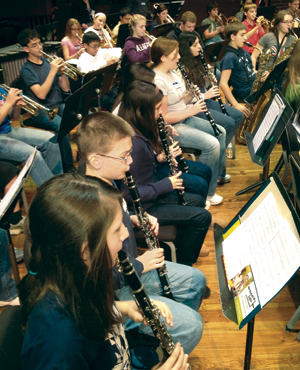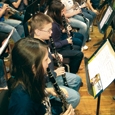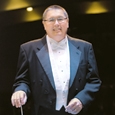 When I was a new director, I often spent all my instructional time addressing the 30 minutes of music scheduled for the next concert. Eventually I began to reflect on how much effort was spent on so little music. We were lucky if our concert lasted 40 minutes. Parents and administrators often praised our performances, but I knew something was wrong. When I passed out new music and began rehearsing, I was troubled by how the band played. I seemed to repeat instructions continually. Such fundamentals as pitch, rhythm, balance, and intonation were more of a problem than just a few days before. It was as if the band had forgotten how to play.
When I was a new director, I often spent all my instructional time addressing the 30 minutes of music scheduled for the next concert. Eventually I began to reflect on how much effort was spent on so little music. We were lucky if our concert lasted 40 minutes. Parents and administrators often praised our performances, but I knew something was wrong. When I passed out new music and began rehearsing, I was troubled by how the band played. I seemed to repeat instructions continually. Such fundamentals as pitch, rhythm, balance, and intonation were more of a problem than just a few days before. It was as if the band had forgotten how to play.
The band had not forgotten anything. The problem was not with the students; the problem was with me. In rehearsals I tried to fix performance problems as these arose in specific pieces, but the musical concepts did not transfer to other music. I was forever reacting to isolated playing problems instead of preparing students to succeed with all types of music. I realized that students were being shortchanged.
One popular study indicates that directors spend less than 3% of instructional time teaching musical concepts. As a young teacher I worked with an elementary director who provided an amazing example of how to teach conceptually. I learned that factual knowledge and drill are important but these skills should be placed in a broader context.
Conceptual instruction in music goes beyond symbols on the page and explores why music works as it does. I remember playing in an all-state rehearsal under the leadership of Col. Arnald D. Gabriel, who at the time directed the U.S. Air Force Band, Symphony Orchestra, and Singing Sergeants. Col. Gabriel stopped in rehearsal and spent five minutes working with two bass clarinetists until they were playing perfectly in tune. We all listened carefully to the overtones that were produced and the subsequent lecture about the overtone series and its importance to music. We had a concert the next day, but Gabriel felt it was more important to teach us a lesson we would use forever.
There is a temptation to dispense little bits of information in rehearsal without considering how these facts could be organized and linked to musical concepts. Consider the director who tunes every player with an electronic tuner and tells each person what adjustment to make. These actions produce limited progress. A better plan is to turn off the tuner and provide the facts and techniques related to developing individual and ensemble pitch. Start with breathing exercises, pitch matching, and simple chorales (with lots of singing). Also, offer instruction on the inherent pitch deficiencies of instruments, the effect of temperature on pitch, ways to alter pitches physically and mechanically, and the importance of the overtone series to intonation. These activities are related and give deeper meaning to the concept of intonation. This knowledge provides students with tools to solve future intonation problems in other music.
Student success in music relates directly to the strength of the director’s instruction. If teachers do not provide in-depth instruction, students will remain uninformed. There are methods and materials that offer help for teaching concepts in rehearsals. It is important to draw upon a variety of sources to develop a comprehensive approach. Some method books introduce a concept and offer little review until later. Find every book, recording, video, and handout that might help in developing your approaches.
No matter where you are in a rehearsal cycle, it is important that some of each rehearsal be spent on teaching concepts. This background prepares students to solve problems for themselves. By giving them the information they need, the group will actually consume advanced literature at a faster rate and produce more rewarding performances.






